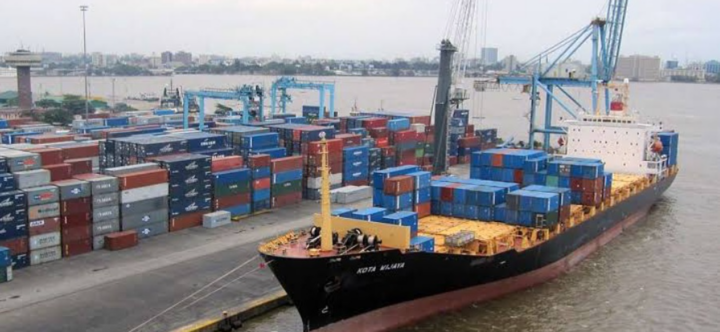In a strategic shift in customs procedures, the Nigeria Customs Service (NCS) has announced its decision to prioritize cargo scanning over physical examination at seaports. This move is aimed at enhancing efficiency, reducing delays, and leveraging technology to streamline the inspection process for imported goods.
Key Points of the NCS Policy Adjustment:
1. **Focus on Cargo Scanning Technology:**
– The NCS is placing a greater emphasis on the use of cargo scanning technology as the primary method for inspecting imported goods at seaports. This signifies a shift away from extensive physical examinations in favor of non-intrusive scanning methods.
2. **Efficiency and Time Savings:**
– Prioritizing cargo scanning is expected to lead to increased efficiency in the customs clearance process. Non-intrusive scanning technologies can swiftly examine the contents of containers without the need for extensive physical inspections, resulting in time savings for both customs officials and importers.

3. **Minimization of Disruptions to Trade:**
– The adoption of cargo scanning as a primary inspection method minimizes disruptions to trade flows. Physical examinations, which can be time-consuming and resource-intensive, often contribute to delays in cargo clearance. Cargo scanning offers a more streamlined and less disruptive approach.
4. **Enhanced Risk Management:**
– The use of cargo scanning technology enables customs authorities to enhance risk management capabilities. By leveraging advanced scanning systems, customs officials can identify potential risks and conduct targeted inspections based on specific criteria, improving the overall effectiveness of security measures.
5. **Technology-driven Trade Facilitation:**
– Prioritizing cargo scanning aligns with a broader trend toward technology-driven trade facilitation. Modernizing customs procedures with the use of scanning technologies contributes to a more digital, efficient, and transparent trade environment.
6. **Investment in Scanning Infrastructure:**
– The success of the new approach depends on the availability and effectiveness of scanning infrastructure at seaports. The NCS may need to invest in advanced scanning technologies, training for customs personnel, and robust maintenance procedures to ensure the sustained effectiveness of cargo scanning.
7. **Stakeholder Engagement and Education:**
– Communication and engagement with stakeholders, including importers, clearing agents, and shipping companies, are crucial for the successful implementation of the new policy. Providing clear guidelines, conducting training sessions, and fostering collaboration will contribute to a smoother transition.
8. **Monitoring and Continuous Improvement:**
– The NCS is likely to implement monitoring mechanisms to assess the effectiveness of the cargo scanning prioritization. Continuous evaluation and a commitment to making adjustments based on feedback and performance data will be essential for optimizing the new customs procedures.
In conclusion, the Nigeria Customs Service’s decision to prioritize cargo scanning over physical examination at seaports reflects a forward-looking approach to customs procedures. By leveraging technology for non-intrusive inspections, the NCS aims to enhance efficiency, reduce trade disruptions, and contribute to the overall modernization of trade facilitation in the country.
Support InfoStride News' Credible Journalism: Only credible journalism can guarantee a fair, accountable and transparent society, including democracy and government. It involves a lot of efforts and money. We need your support. Click here to Donate
